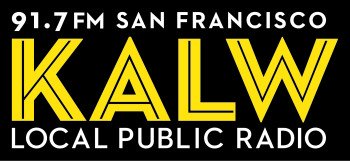
Art Farnsley
People all over the country are turning away from traditional religious organizations. But according to Art Farnsley, professor of religious studies at Indiana University-Purdue University, they may have very different reasons for doing so.
Farnsley’s opinions are based on in-depth interviews he conducted with a very specific subgroup: flea market dealers at a gun show in Indiana. Judy Silber spoke to Farnsley about some of the differences between people who are rejecting religion in the Midwest versus those on the West Coast.
This is Part II of of two-part interview.
SILBER: In your book you said Christianity was a common theme in your discussions with flea market dealers. They are rejecting Christian churches, but not the beliefs. Did you notice other common themes?
FARNSLEY: Another common theme is nature. America has a strong stream of this nature religion. I’m sure you could take it back to Thoreau, Emerson and others. The idea that we see God in nature, that the environment is crucially important and IS somehow a mother to us.
I heard a lot of: I don’t need to go to a church. I can experience God just as much sitting out here in the flea market. And I should point out that these flea markets are outdoors.
SILBER: Here on the West Coast, there are a lot of people who consider themselves spiritual, but not religious, and it’s really important to them. I get the sense that it’s different for the flea market dealers.
FARNSLEY: I asked the flea market dealers how important religion and their beliefs were to them. And of course, nearly every one of them said, “very important.”
But if I were measuring its importance to them, I would ask, do you talk about it very often to other people? Do you spend a lot of time thinking about it and reading or watching programs about it? Do you do other things in your life that reinforce these individual choices and how you’ve made them?
When you talk about West Coast seekers, they do those things. They talk about them — sometimes you can’t get them to shut up about them. They talk about, how I read this new book, and I did this. My flea market dealers, that’s not really true for them. They see themselves as good Christians, just as good as those other Christians, only they’ve separated themselves from the organization.
SILBER: So then, in a way, you could say that the people here, the seekers, are more religious?
FARNSLEY: It depends on what you mean by religious. For me, it comes down to this distinction: when you say spiritual or religious, do you mean this a discipline and a way you live your life [the California seekers]? Or do you mean there’s a set things one ought to believe, and you believe those things [the flea market Christians]?
If religion is ultimately about belief and saying yes, then my flea market dealers are more religious.
But on the other side, if by religion you mean you are actively involved in it, it influences the other things in your life, it helps you make your decisions, then the seekers are more religious. They are religious, just in a non-traditional way.
Art Farnsley is the author of Flea Market Jesus.
Edited for clarity by Judy Silber
Are you someone who believes in God, but doesn’t go to church? Tell us why in the comments below.

